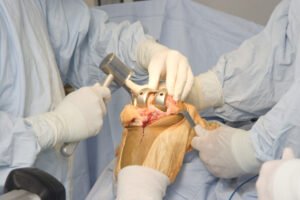- Home
- Treatment
- Our Doctors
- Our Hospitals
- Apollo Hospitals, Greams Road, Chennai
- Fortis Memorial Research Institute, Gurgaon
- Manipal Hospitals Dwarka, Delhi
- Max Super Speciality Hospital, New Delhi
- Sir Ganga Ram Hospital, New Delhi
- Fortis Escorts Hospital New Delhi
- BLK Super Specialty Hospital New Delhi
- Indraprastha Apollo Hospital New Delhi
- Medanta hospital gurgaon
- Sanar International Hospital
- Artemis hospital gurgaon
- CK Birla hospital gurgaon
- Services
- About us
- Review
- Contact us
ORTHOPEDIC

Orthopedics is a medical specialty that focuses on the diagnosis, treatment, and prevention of disorders and injuries related to the musculoskeletal system. This complex system includes bones, joints, ligaments, tendons, muscles, and nerves, all of which work together to provide structure, support, and movement to the human body.
Contact Us
Orthopedics is a branch of medicine focused on the diagnosis, treatment, and prevention of disorders and injuries related to the musculoskeletal system. This intricate system encompasses bones, joints, muscles, ligaments, tendons, and nerves, all of which work together to provide structure, support, and movement to the body.
The field of orthopedics addresses a wide range of conditions, from congenital disorders to degenerative diseases and traumatic injuries. Orthopedic surgeons are medical professionals specialized in this field, utilizing both surgical and non-surgical interventions to restore function, relieve pain, and improve the overall quality of life for patients.
One of the fundamental aspects of orthopedics is its multidisciplinary nature. Orthopedic surgeons often collaborate closely with other healthcare professionals, such as physiotherapists, occupational therapists, radiologists, and primary care physicians, to ensure comprehensive care for patients. This interdisciplinary approach allows for personalized treatment plans tailored to the individual needs of each patient.
Orthopedic conditions can affect people of all ages and backgrounds. Pediatric orthopedics focuses on addressing musculoskeletal issues in children, including congenital abnormalities like clubfoot or developmental dysplasia of the hip. Sports medicine, another subspecialty within orthopedics, deals with injuries sustained during athletic activities, ranging from minor strains to complex ligament tears and fractures.
Additionally, orthopedic surgery encompasses various procedures, including joint replacement surgeries like hip and knee replacements, arthroscopic surgeries for repairing damaged cartilage or ligaments, spine surgeries for conditions such as herniated discs or scoliosis, and fracture fixation procedures to stabilize broken bones.
Advancements in technology and medical techniques have revolutionized the field of orthopedics. Minimally invasive procedures, robotics-assisted surgeries, and innovative biomaterials have led to improved surgical outcomes, reduced recovery times, and enhanced patient satisfaction.
Preventive measures also play a crucial role in orthopedic care. Education on proper body mechanics, injury prevention strategies, and lifestyle modifications can help reduce the risk of musculoskeletal disorders and injuries. Additionally, maintaining a healthy weight, staying physically active, and avoiding harmful habits like smoking can contribute to overall musculoskeletal health.
In conclusion, orthopedics is a vital medical specialty dedicated to the diagnosis, treatment, and prevention of musculoskeletal disorders and injuries. With its multidisciplinary approach, advanced technologies, and commitment to patient care, orthopedics continues to make significant contributions to improving the mobility, function, and well-being of individuals worldwide.
